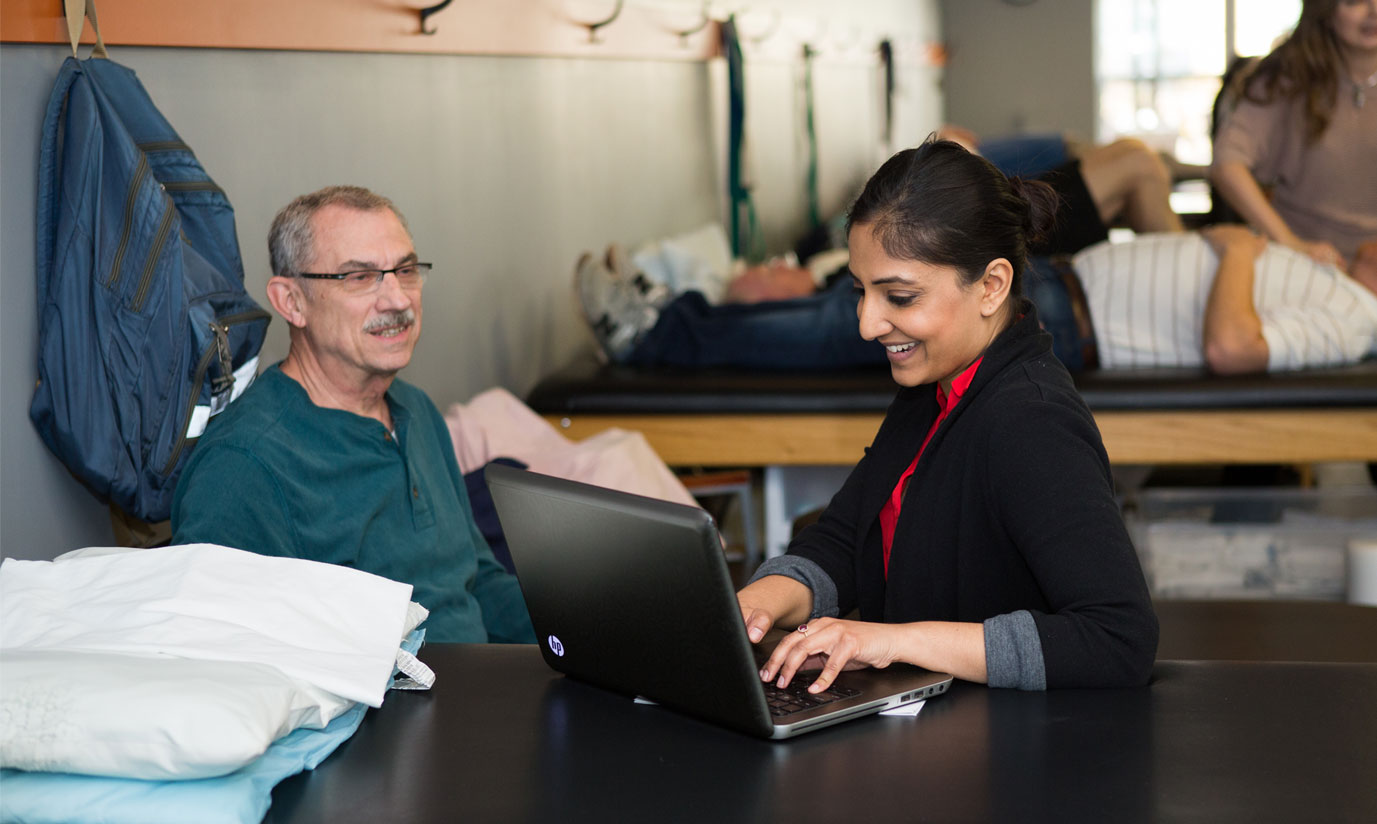
DEI: Foundational Series
-
Register
- Non-Member - $300
- PT Member - $100
- PTA Member - $100
- Student - $100
- Post-Professional Student - $100
- Staff - Free!
Through a highly self-reflective approach, participants will learn about identity, privilege, bias, and allyship as foundational pillars to understanding how to achieve DEI. Participants will engage in self-reflection throughout the series to apply concepts to their clinical and personal lives with the overall goal of creating more respectful and inclusive environments.
NOTE: All 3 parts must be completed sequentially in order to receive CEUs.
Part 1: Unconscious Bias in the Health Professions
A large part of advancing EDI is understanding our biases. Exploring unconscious bias is a critical starting point to understanding structural inequity and why some maintain power and influence and others are held back, despite our best intentions. Participants learn where individual unconscious biases come from and how they collectively manifest to continue advantaging some and disadvantaging others. Participants explore their own biases and how to start mitigating the negative effects of those biases.
Learning Objectives
1. What unconscious bias is and where it comes from
2. How it plays out in our lives and effects personal and professional decision-making, especially in healthcare settings
3. How to mitigate the effects of unconscious bias
Part 2: Power, Privilege and Microaggressions
The second part of this series presents foundational information on identity, power, and privilege to understand how some identities hold more or less power and privilege in society, and in clinical settings. Identities that carry more power create dominant cultures in society, which both intentionally and unintentionally oppress or disadvantage others, often in the form of microaggressions. Participants learn that a culture of respect and accountability is created and maintained through everyday acts of allyship, small and large, and explore how these can be integrated into the clinical environment.
Learning Objectives
1. Reflect on one's various identities
2. Learn which identities carry more power and create dominant cultures
3. Understand how bias, identity, and privilege manifest as microaggressive behavior and comments towards others
Part 3: Responding to Microaggressions through Allyship
Equity and inclusion can thrive and grow when everyone plays a part in creating respectful and safe environments. This workshop continues exploring concepts related to allyship and how participants can support those around them. It presents allyship and bystander intervention frameworks to engage participants in thinking about how they can intervene in situations where harm is occurring. Participants gather both bystander intervention skills as well as generate ideas for how to institutionalize allyship behaviors for maximum impact.
Learning Objectives:
1. Understand authentic allyship traits and practices through ally frameworks.
2. Explore responding to microaggressions as an ally.
3. Discover bystander intervention strategies to reduce harm.
Diana Lautenberger
MA
Diana Lautenberger, MA, manages the Association of American Medical College's gender equity portfolio as co-lead of the AAMC's Gender Equity Lab. She also serves as a faculty member for the AAMC's leadership development seminars for junior and midcareer women and directs research projects related to faculty and staff workplace issues, specifically focused on diversity and inclusion, gender equity, and culture and climate.
Previously, she led various leadership and workforce engagement initiatives aimed at faculty development for AAMC. Responsible for curriculum design and implementation, she oversaw two leadership development programs for faculty to equip them with leadership skills needed to deal with the impending changes of the academic and health care environments.
She holds a masters degree in art education, with a focus on curriculum design and creative thinking as a driver of equity and solution to address systemic oppression. She is part of several organizations in the Washington, D.C. area, that use artistic expression to explore concepts of racism, sexism, and social justice.
Course Instructions
- Click on the Contents tab to watch the course recordings.
- Click the Take Quiz button to complete the assessment. Learners will have 3 attempts to pass and must answer at least 70% of questions correctly.
- Click Fill Out Survey under the Evaluation listing to provide valuable course feedback. Scroll down on all questions as there may be answer options that expand past the size of the window.
- Click the View/Print Your Certificate button under the Certificate listing. You can view/print your certificate at any time by visiting the APTA Learning Center and clicking the CEU Certificate/Transcript link on the left-hand side of the page.
Need Assistance?
For assistance logging in, accessing activities, claiming credit, or for other questions or concerns, please e-mail learningcenter@apta.org.



